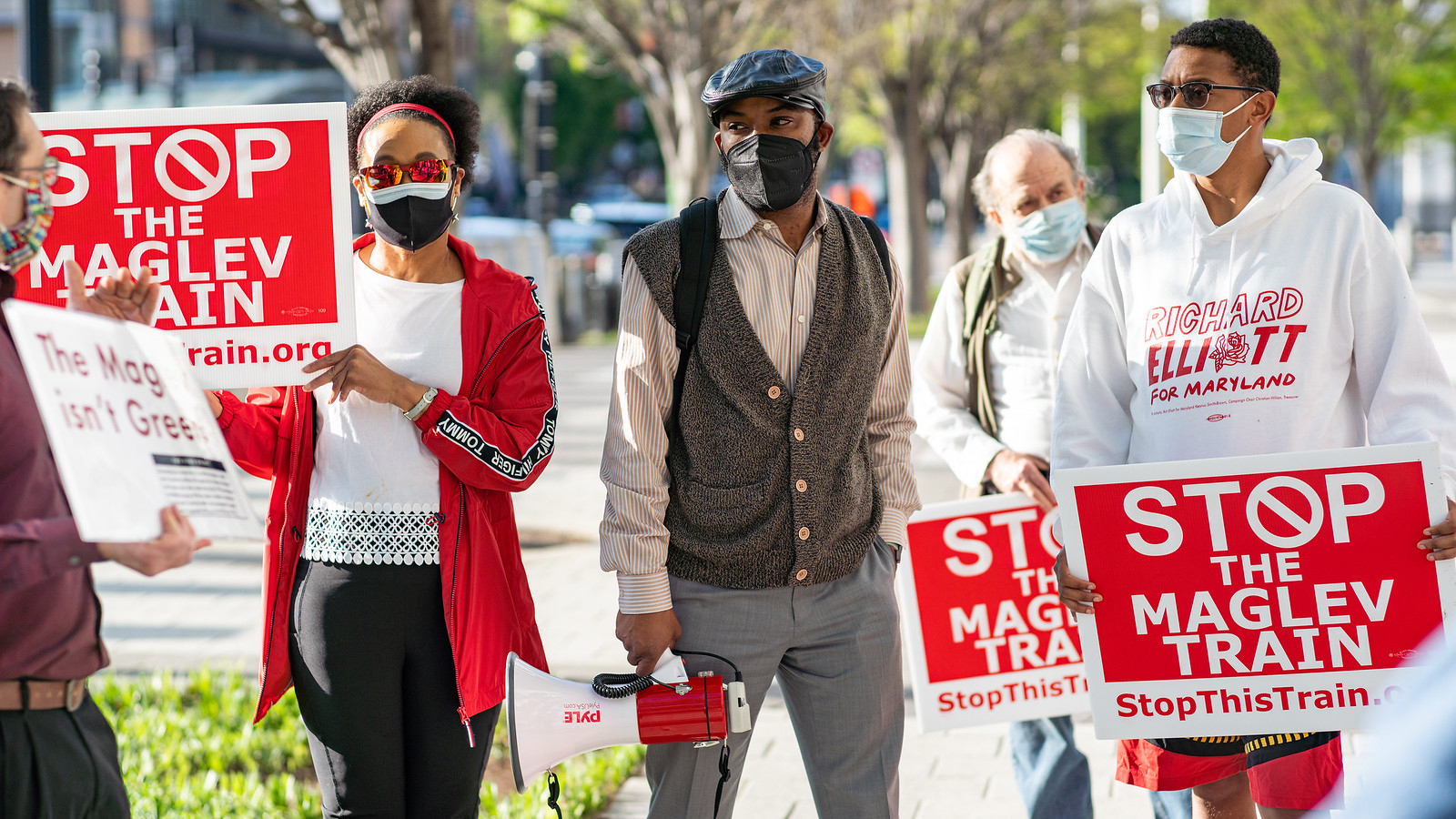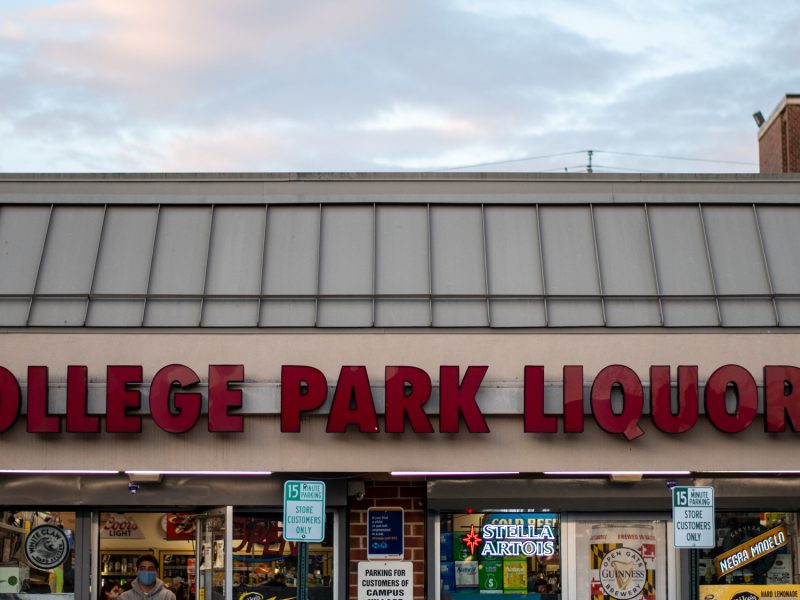When Martin Mitchell envisions the future of Laurel, Maryland, he dreams that the Green Line Metro train will be extended from Greenbelt to serve his community. What he does not picture is a magnetic levitation train leading to the destruction of local green spaces.
The Prince George’s County Young Democrats president and Laurel City Council At-Large candidate does not think the high-speed train has a place in “Gorgeous Prince George’s.”
The superconducting magnetic levitation system proposed by Baltimore-Washington Rapid Rail would operate between Washington, D.C., and Baltimore with a stop at the Baltimore-Washington International Thurgood Marshall Airport.
But local residents, transit activists, environmental organizations and local school boards want to stop the project that would be built in their backyards without permission before it becomes a reality.
Mitchell, who has opposed the SCMAGLEV for years but has become more vocal in the last year, calls the project “privatized public transportation.”
“It’s obviously not going to be affordable to a lot of people so I don’t understand how you expect to take a lot of cars off the road and be an alternative to driving,” he added.
Along with the Maryland Coalition for Responsible Transit and Citizens Against the SCMAGLEV, the Anne Arundel and Prince George’s counties school boards also oppose the project.
[Community members talk history of racism and urban renewal along Purple Line corridor]
District 6 Prince George’s County Public Schools Board of Education representative Belinda Queen said she is concerned about the noise and rumbling that could result from the 311 mph train running under schools and homes and how it could distract students.
“I understand that we need to move into the 21st century but not on the backs of our residents and citizens,” Queen added.
Janet Gingold, Prince George’s County Sierra Club Executive Committee Chair, said that while the organization supports high-speed rail, the SCMAGLEV is a project that they cannot get behind because of issues of inequity, misuse of public lands and the possibility of taking resources away from other transit.
The MAGLEV would cut through conservation areas and public lands such as Beltsville Agricultural Research Center despite there being two other trains — the MARC Penn Line and Amtrak’s Acela — that already take people to BWI and Baltimore from D.C.
“The people along the route get no benefit from this project because there are no stops along the way,” Gingold said. “If you’re in College Park and you want to ride the MAGLEV, you’d have to go all the way downtown to D.C. to get on it.”
Gingold said that since there are two other trains that go to Baltimore from D.C., the MAGLEV might not make a difference for traffic congestion.
[College Park City Council hears plans for new development in Discovery District]
Largo resident Stanford Fraser said for the estimated $60 price tag on MAGLEV train tickets, he would be able to get about 1,000 miles out of his Ford Fusion hybrid.
“There’s already ways to have quick trips between D.C. and Baltimore without disturbing these communities and without disturbing the wildlife communities,” he said.
Building a new railway tunnel in Baltimore to replace the 148-year-old Baltimore and Potomac Tunnel would improve travel time and train reliability, according to the B&P Tunnel Project draft environmental impact statement.
For other Prince George’s County community members, the 1,500 new permanent jobs created by the project are not enough for them to overlook plans to build through communities without their consent or environmental concerns.
“It doesn’t even stop in the county that it wants to build through,” said Temple Hills resident Janna Parker. “It essentially seems just like another project that is being done at the expense of people of color, in regards to their ownership of land and property as well as their ability to make decisions about what happens on the land and property they own, and subsequently should govern.”
Richard DeShay Elliott, who is running for the Maryland House of Delegates District 24 seat, said mass transit should be improved “for everybody before we even consider creating upper-class-only transit.”
“We can do so much more to reduce traffic, reduce emissions and expand job opportunity than by going with this project that has so many false promises and so much trickery built into the process,” Elliott said.
The Federal Railroad Administration is currently evaluating the proposed SCMAGLEV in accordance with the National Environmental Policy Act.
“Since the private sector can’t work directly with the federal government on environmental assessments, the Maryland Department of Transportation Maryland Transit Administration is serving as the government project sponsor,” MDOT MTA media relations Brittany Marshall wrote in an email.



